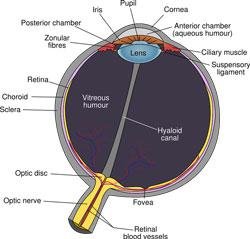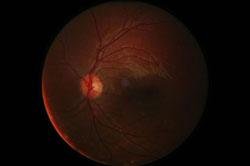Have you ever wondered how something as seemingly unrelated as high blood pressure can affect your vision? The truth is, uncontrolled hypertension can pose a significant threat to your eyesight.
Let's dive deep into the connection between high blood pressure and eye health, exploring the most common eye problems it can cause, and outlining effective prevention and treatment strategies.
Understanding High Blood Pressure and Its Impact
High blood pressure, also known as hypertension, occurs when the force of blood pushing against your artery walls is consistently too high. Over time, this relentless pressure can damage the delicate blood vessels throughout your body, including those that nourish your eyes.
Hypertension and Eye Problems: A Dangerous Combination
Hypertension is a leading cause of various eye problems. Let's explore some of the most concerning ones:
Hypertensive Retinopathy: The Silent Threat
Hypertensive retinopathy is the leading eye complication associated with high blood pressure. It damages the blood vessels in your retina, the light-sensitive layer at the back of your eye responsible for converting light into electrical signals transmitted to the brain. These damaged vessels can leak fluid or even bleed, blurring your vision or causing complete vision loss.
The sneaky aspect of hypertensive retinopathy is that it often progresses silently in the early stages. You might not experience any noticeable symptoms until the condition has already caused significant damage.
This underscores the importance of scheduling regular eye exams, even if you don't have any vision concerns. Importance of regular eye exams for people with high blood pressure
During a comprehensive eye exam, your doctor will use specialized equipment to examine your retina for signs of hypertensive retinopathy. These signs can include:
- Tiny spots (hemorrhages) on the retina
- Swelling of the macula (the central part of the retina responsible for detailed central vision) or the optic nerve (the bundle of nerve fibers that carries visual information from the eye to the brain)
- Narrowed blood vessels
- Leaking fluid or bleeding in the back of the eye
The good news is that hypertensive retinopathy is treatable. By effectively managing your blood pressure, you can prevent further damage and even improve your vision in some cases.
Optic Neuropathy: Sudden Vision Loss
Optic neuropathy is another eye condition that can be triggered by high blood pressure (1). The optic nerve is responsible for transmitting visual information from the eye to the brain.
When blood flow to the optic nerve is restricted due to narrowed or blocked blood vessels, it can lead to sudden vision loss. This vision loss can be painless and affect one or both eyes simultaneously. Vision loss from high blood pressure

Here's how to minimize your risk of optic neuropathy:
-
Maintain healthy blood pressure levels: This is the cornerstone of preventing optic neuropathy.
-
Manage diabetes: Diabetes can damage blood vessels throughout your body, including those supplying the optic nerve. Keeping your blood sugar under control is crucial.
-
Quit smoking: Smoking significantly reduces blood flow and increases your risk of various health problems, including optic neuropathy.
-
Central Serous Choroidopathy: Fluid Buildup and Distorted Vision
Central serous choroidopathy (CSC) is a condition where fluid accumulates under the retina, causing distorted vision and blind spots. This condition is more prevalent in men with high blood pressure and those with type A personalities (characterized by competitiveness and a strong desire for achievement).
While most cases of CSC resolve on their own within a few months, it's still essential to manage your blood pressure to prevent future occurrences and safeguard long-term vision health.
Taking Action to Protect Your Eyesight
The good news is that you have the power to significantly reduce your risk of developing eye problems related to high blood pressure. Here are some key strategies to incorporate into your lifestyle:
-
Manage Your Blood Pressure: This is the most crucial step. Work with your doctor to develop a personalized plan to control your blood pressure. This might involve lifestyle changes, medication, or a combination of both.
-
Maintain a Healthy Weight: Losing excess weight can significantly lower your blood pressure. Aim for a healthy weight loss through a combination of a balanced diet and regular exercise.
-
Embrace a Heart-Healthy Diet: Focus on consuming plenty of fruits, vegetables, and whole grains. Limit saturated fats, salt, and red meat. The DASH (Dietary Approaches to Stop Hypertension) diet is a proven strategy for managing blood pressure. Best diet for high blood pressure and eyes
-
Exercise Regularly: Aim for at least 30 minutes of moderate-intensity exercise most days of the week. Physical activity helps lower blood pressure, improve circulation, and promotes overall health. Exercises to lower blood pressure
Can High Blood Pressure Cause Other Eye Problems?
While hypertensive retinopathy, optic neuropathy, and central serous choroidopathy are the most common eye complications of high blood pressure, they aren't the only ones. Here's a brief look at some other potential concerns:
-
Floaters: These are tiny specks or cobweb-like shapes that float across your vision. While floaters are a common occurrence, especially with age, a sudden increase in floaters can sometimes be a sign of bleeding in the vitreous humor (the gel-like substance that fills the center of your eye). This bleeding can be associated with uncontrolled high blood pressure.
-
Glaucoma: Glaucoma is a group of eye diseases that damage the optic nerve, leading to vision loss. While high blood pressure isn't a direct cause of glaucoma, it can worsen existing glaucoma or contribute to faster progression of the disease.
When to See an Eye Doctor for High Blood Pressure
If you have high blood pressure, it's crucial to schedule regular eye exams with your ophthalmologist. Eye doctor for high blood pressure
Here are some specific situations that warrant a prompt visit to your eye doctor:
- You experience any sudden changes in your vision, such as blurred vision, blind spots, or seeing floaters.
- You notice any new eye pain or redness.
- You have a history of high blood pressure and haven't had a comprehensive eye exam in over a year.
Protecting Your Eyes and Your Overall Health
Remember, high blood pressure isn't just about your eyes. It can damage your brain, kidneys, and other vital organs. By taking proactive steps to manage your blood pressure, you're not just protecting your vision; you're investing in your overall health and well-being.
Here are some additional tips to consider:
Explore Natural Remedies (with Caution)
Best natural remedies for high blood pressure and eyes include:
- Stress Management Techniques: Chronic stress can contribute to high blood pressure. Techniques like yoga, meditation, and deep breathing can be helpful.
- Limited Caffeine Intake: Excessive caffeine consumption can cause temporary spikes in blood pressure.
- Increased Potassium Intake: Potassium helps regulate blood pressure. Aim to include fruits and vegetables like bananas, oranges, and leafy greens in your diet.
Remember: It's crucial to discuss any potential natural remedies with your doctor before incorporating them into your routine, especially if you're already taking medication for high blood pressure.
Don't Hesitate to Ask Questions
During your doctor's appointments, don't hesitate to ask questions and voice any concerns you might have about your blood pressure and its impact on your eye health.
Conclusion
By understanding the connection between high blood pressure and eye problems, you can take charge of your health and protect your vision. Schedule regular eye exams, work with your doctor to manage your blood pressure, and embrace a healthy lifestyle. With proactive measures, you can significantly reduce your risk of vision complications and safeguard your precious eyesight.

